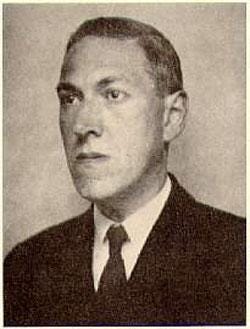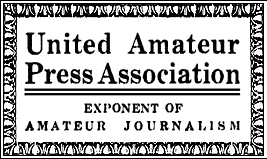
The Rocks, Sydney, Australia, October 4, 2013.
They were infrequent, these spurts of creativity, or mischief making. “He’s a smart c…., knows about politicians and stuff,” Grimes said in the car.
“What’s your real name?” Michael asked at one point.
“Peter Grimes,” he replied.
“There’s a famous opera of that name, by Benjamin Britten.”
“You into that stuff?”
“Not so much, but it’s a very beautiful piece of music.”
They had met by accident earlier in the day, when Michael encountered a group of the local lads celebrating a friend’s 18th birthday.
Going to the pub legally for the first time was an Australian rite of passage.
As always Michael was drawn to a kind of delinquent energy, not to the birthday lad, who spent quite some considerable part of the evening vomiting in a car park, but to Grimes, a personality he had no idea the seaside town had. It was the pretty eyes in a striking, dark half-aboriginal face that he noticed first. Not that it would be safe to make such an observation to Grime’s face, who made his past propensity to violence clear.
Grimes group, which coalesced around him as the alpha male, talked endlessly about respect, a trait others in the area found less significant. As the day disappeared, one group morphed into another, but Grimes remained.
Michael, an urban person temporarily trapped in a conglomeration of seaside suburbs, had felt an isolation, buckling at conformity, an irritation at the way people went quietly about their lives, settling around him.
If, as the famous Cocteau quote went, every man’s café was the centre of his universe, then he was yet to find his café. And probably never would; but that was no reason not to enjoy the day. To start meeting people. To survey the local social peculiarities; its rough edges. And to institute some other saner, more sensible options for populating the gaps.
Grimes was 24, with bruises on his legs and scrapes on his knuckle, both of which he insisted were from a new job as a plasterer, not from fighting.
“Twenty four was my happiest year,” Michael said. “That was the year I was happiest.”
Just as other charismatic and lunatic, clever and absurd 24-year-olds had responded, Grimes wanted to know why but already knew.
“All that garbage of being a kid is gone,” he said.
“And you’re old enough to be yourself,” Michel replied, without finishing the sentiment.
Grimes was one of 12 children. His father had dropped him at his grandparent’s house when he was six years old, not wanting to see him end up in the care of the Department of Community Services, like his five brothers and six sisters. He had gone to the Catholic Church only a few minutes away from their house. The father of another of the younger men had basically disappeared after severely injuring several people when he fell asleep at the wheel doing 120 kilometers per hour. They were all damaged, all survivors.
The development which characterised a number of the seaside towns to the north of Sydney was only veneer across some of the South Coast. A major form of entertainment amongst a younger age group was driving out to various vantage points, parking at the car parks and socialising between the cars, making what some might see as inappropriate passes at women, talking endlessly about each other; in a place where everybody knew Grimes, and Grimes knew just about everybody.
Sometimes these peculiar transactions, synergies of spirit, companionship amongst people of different ilk, last for the rest of life. Mostly they barely last an evening.
As he said his farewells he noticed it had been a full moon; and the light played out in a sliver of sea and salt. And a fractured happenstance.
THE BIGGER STORY:
http://www.brainpickings.org/index.php/2013/01/11/h-p-lovecraft-advice-on-writing/
H. P. Lovecraft’s Advice to Aspiring Writers, 1920
by Maria Popova
“A page of Addison or of Irving will teach more of style than a whole manual of rules, whilst a story of Poe’s will impress upon the mind a more vivid notion of powerful and correct description and narration than will ten dry chapters of a bulky textbook.”

“If there is a magic in story writing,” admonished Henry Miller, “and I am convinced there is, no one has ever been able to reduce it to a recipe that can be passed from one person to another.” And yet, famous advice on writing abounds.
In January of 1920, iconic science fiction and fantasy author H. P. Lovecraft published a short guide titled “Literary Composition” for United Amateur Press Association — a grassroots literary education collective that dubbed itself an “exponent of amateur journalism,” an early version of today’s blogs and citizen journalism. Found in the anthology Writings in the United Amateur(free download; public library), the essay offers aspiring writers technical tips and big-picture wisdom on the art and craft of the written word.
Much like Jennifer Egan did nearly a century later, Lovecraft stresses the vital osmosis between reading and writing:
No aspiring author should content himself with a mere acquisition of technical rules. … All attempts at gaining literary polish must begin with judicious reading, and the learner must never cease to hold this phase uppermost. In many cases, the usage of good authors will be found a more effective guide than any amount of precept. A page of Addison or of Irving will teach more of style than a whole manual of rules, whilst a story of Poe’s will impress upon the mind a more vivid notion of powerful and correct description and narration than will ten dry chapters of a bulky textbook.
Lovecraft notes the equal importance of non-reading as intellectual choice:
It is also important that cheaper types of reading, if hitherto followed, be dropped. Popular magazines inculcate a careless and deplorable style which is hard to unlearn, and which impedes the acquisition of a purer style. If such things must be read, let them be skimmed over as lightly as possible. An excellent habit to cultivate is the analytical study of the King James Bible. For simple yet rich and forceful English, this masterly production is hard to equal; and even though its Saxon vocabulary and poetic rhythm be unsuited to general composition, it is an invaluable model for writers on quaint or imaginative themes.
He advocates for cultivating a love of uncommon words:
One superlatively important effect of wide reading is the enlargement of vocabulary which always accompanies it. The average student is gravely impeded by the narrow range of words from which he must choose, and he soon discovers that in long compositions he cannot avoid monotony. In reading, the novice should note the varied mode of expression practiced by good authors, and should keep in his mind for future use the many appropriate synonymes he encounters. Never should an unfamiliar word be passed over without elucidation; for with a little conscientious research we may each day add to our conquests in the realm of philology, and become more and more ready for graceful independent expression.
But in enlarging the vocabulary, we must beware lest we misuse our new possessions. We must remember that there are fine distinctions betwixt apparently similar words, and that language must ever be selected with intelligent care.
Like Thoreau, Lovecraft finds in nature a literary muse:
For the purpose of securing epithets at once accurate and felicitous, the young author should familiarize himself thoroughly with the general aspect and phenomena of Nature, as well as with the ideas and associations which these things produce in the human mind.
He offers a meditation on fact and fiction, with a cautionary note about narrative sequence:
In fictional narration, verisimilitude is absolutely essential. A story must be consistent and must contain no event glaringly removed from the usual order of things, unless that event is the main incident, and is approached with the most careful preparation. In real life, odd and erratic things do occasionally happen; but they are out of place in an ordinary story, since fiction is a sort of idealization of the average. Development should be as lifelike as possible, and a weak, trickling conclusion should be assiduously avoided. The end of a story must be stronger rather than weaker than the beginning; since it is the end which contains the denouement or culmination, and which will leave the strongest impression upon the reader. It would not be amiss for the novice to write the last paragraph of his story first, once a synopsis of the plot has been carefully prepared—as it always should be. In this way he will be able to concentrate his freshest mental vigour upon the most important part of his narrative; and if any changes be later found needful, they can easily be made. In no part of a narrative should a grand or emphatic thought or passage be followed by one of tame or prosaic quality. This is anticlimax, and exposes a writer to much ridicule.

Lovecraft enumerates the twenty most common mistakes of young authors, “aside from those gross violations of syntax which ordinary education corrects,” and offers a common cure for all:
Erroneous plurals of nouns, as vallies or echos.
Barbarous compound nouns, as viewpoint or upkeep.
Want of correspondence in number between noun and verb where the two are widely separated or the construction involved.
Ambiguous use of pronouns.
Erroneous case of pronouns, as whom for who, and vice versa, or phrases like “between you and I,” or “Letwe who are loyal, act promptly.”
Erroneous use of shall and will, and of other auxiliary verbs.
Use of intransitive for transitive verbs, as “he was graduated from college,” or vice versa, as “heingratiated with the tyrant.”
Use of nouns for verbs, as “he motored to Boston,” or “he voiced a protest.”
Errors in moods and tenses of verbs, as “If I was he, I should do otherwise,” or “He said the earth wasround.”
The split infinitive, as “to calmly glide.”
The erroneous perfect infinitive, as “Last week I expected to have met you.”
False verb-forms, as “I pled with him.”
Use of like for as, as “I strive to write like Pope wrote.”
Misuse of prepositions, as “The gift was bestowed toan unworthy object,” or “The gold was dividedbetween the five men.”
The superfluous conjunction, as “I wish for you to do this.”
Use of words in wrong senses, as “The book greatlyintrigued me,” “Leave me take this,” “He was obsessedwith the idea,” or “He is a meticulous writer.”
Erroneous use of non-Anglicised foreign forms, as “a strange phenomena,” or “two stratas of clouds.”
Use of false or unauthorized words, as burglarize orsupremest.
Errors of taste, including vulgarisms, pompousness, repetition, vagueness, ambiguousness, colloquialism, bathos, bombast, pleonasm, tautology, harshness, mixed metaphor, and every sort of rhetorical awkwardness.
Errors of spelling and punctuation, and confusion of forms such as that which leads many to place an apostrophe in the possessive pronoun its.
Of all blunders, there is hardly one which might not be avoided through diligent study of simple textbooks on grammar and rhetoric, intelligent perusal of the best authors, and care and forethought in composition. Almost no excuse exists for their persistent occurrence, since the sources of correction are so numerous and so available.
For more timeless wisdom on writing, see F. Scott Fitzgerald’s letter of advice, Zadie Smith’s 10 rules of writing, Kurt Vonnegut’s 8 guidelines for a great story, David Ogilvy’s 10 no-bullshit tips, Henry Miller’s 11 commandments, Jack Kerouac’s 30 beliefs and techniques, John Steinbeck’s6 pointers, Neil Gaiman’s 8 rules, Margaret Atwood’s 10 practical tips, andSusan Sontag’s synthesized learnings.



